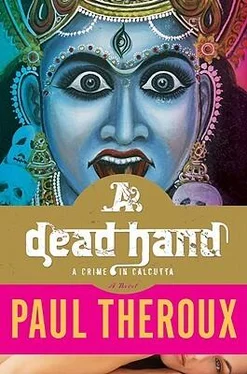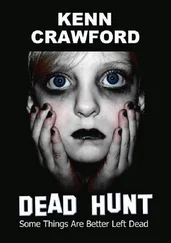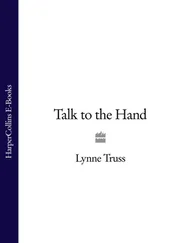"In that squalid little room? As he said?"
I wondered if she was putting me on. She was speaking in that same actressy way, as though performing. Even her manner of pouring the tea was a sort of acting, her making a business of it as she spoke.
"Just as he said."
"But surely they must have found the body."
"The body seems to have disappeared."
The other thing I noticed was that this Mrs. Unger was almost a stranger to me. I thought I knew her, but this was someone new, or at least a woman pretending to be someone else, and doing a good job of it.
"Disappeared? The poor thing."
"Yes, it was a small boy."
"I meant poor Rajat," she said, and giggled a little. "So it's true. I wasn't sure whether to believe him. He can be such a fantasist. He was always dancing around me, telling tales." She looked closely at me. "I'm grateful to you for finding out the truth."
She was peering at me from over the rim of her teacup. I stared back at her. She swallowed and put the cup down.
"Now you must report what you found."
"To whom?"
"To the police. To the authorities. To the consulate — you have friends there, I know."
"And what would be the point of that?"
"To hold him responsible. I had thought he was such a little charmer. As I told you, he had fairy energy. I didn't think you'd find anything, but now it seems he's involved in something sinister." She slid closer to me and said, "I knew you'd find out what really happened. You're a wonderful writer. That's why I trusted you, because you know that the aim of all art is to tell the truth."
I was so transfixed by her performance that I did not respond at once. I did not know this woman. But she was half smiling at me with indignant certainty. I saw that she was waiting for an answer.
"I feel I have found out the truth."
"Rajat was lying. Indians do lie all the time, you know. They are forced to lie because their culture is so strict. You never get the truth from them. 'Yes, I'll take care of it.' But they don't. That's why I went to you."
"Rajat wasn't lying," I said.
"The corpse was in his room. He must be exposed. And he said he had nothing to do with the boy's death. Please have some tea."
"It's too hot for tea," I said. What was she raving about? I was hot, sticky in this humid garden, among stifling big-leaved plants and tangled roots, its paths of wet mossy paving stones, the whir of gnats over the standing water, the biting flies and spiders. I did not know where to begin, and I had the idea that she seemed like a different person because she was insane, especially crazy in this precious pose as an actress in a darkly comic drama.
"I'll go with you to the police," she said. "I was a fool to believe his reassurances. I always suspected that he was a malign influence on Charlie."
"Malign" influence, not "bad" influence — that was the sort of pretension you'd hear in a melodrama.
I said, "You told me you didn't trust the police."
"That was to induce you to take the assignment."
I said, "Why do you want me to tell the consulate what I found?"
"It seems to me that they should be told. It should be easy enough to let them know — after all, they're your friends. They should know, as the police should know. Rajat registered under an assumed name at the Ananda. This is very suspicious. He may have had a hand in the death of a child. He must be exposed."
"And if I do it, if I prove that he's connected with the dead boy, the anonymous corpse, he could be charged with murder."
"I don't know," she said, but unconvincingly. "He'd certainly have some explaining to do. But it would be all circumstantial."
"Why do you say that?"
"Because the body is gone, presumably."
"Not entirely."
"What does that mean?" If she was disturbed, she did not show it. She went on sipping tea.
I took a plastic bag out of my briefcase, the bag yellow with formalin, and I pressed it to show her the pickled hand.
She squinted at it with deep curiosity, as though it might be something to eat, and she said without any emotion, "That's disgusting. Is it human? Please put it away."
"Not before I show you a detail."
She winced, wrinkling her nose as I held it close. I said, "See? No fingerprints. That's not unusual in certain trades. Masonry. Bricklaying. Cement work. And weaving. The fingerprints are worn smooth and are just about unreadable. So I've been told by someone who knows."
All this time she had held her teacup at the level of her chin, as if to defend herself from me. Now she put the cup down.
"What are you saying?"
"This is the hand of a ten-year-old boy. The DNA tells a lot, though doesn't tell his name. He was wrapped in a carpet — one of your carpets. Very likely one of your workers."
"Impossible."
"Almost certainly. Mr. Joshi told me that whenever someone dies at your factory, you personally take them to Varanasi to be cremated. I presume that's where this child was headed, until you wrapped him in one of your generic carpets, tore the label off, and sent him to the Ananda, to Rajat's room."
"You can't prove that," she said.
"Maybe not, because you're like all the other foreigners in India — like Indians too. You delegate your jobs. Someone got this gruesome job. My guess is that not even Charlie knew."
She had begun to laugh, but mirthlessly, a stage laugh. She said, "Why would I have asked you to investigate this business if I'd known you could implicate me?"
"Because you hadn't counted on their keeping the carpet, it was such a cheap one. But we're in hard-up Calcutta. They dumped the body, not the carpet. And you hadn't imagined that a suspicious clerk who'd helped dispose of the child — another flunky — would take pity and keep one of the hands."
"You're wrong. Hindus never do that. They would immediately burn a body part."
"Hindus, no. But this was a Christian. And a Naga. They have rather a fetish about body parts."
"I had nothing to do with this. It's preposterous."
"You knew all along what I just found out today at the consulate, that Rajat had applied for a work visa to the U.S. He was intending to emigrate. Had he gotten the visa, he'd be living with Charlie. That is something that seriously bothers you — his competition for Charlie's affection."
She looked at me with a sour expression and said, "Rajat is a kink. I suspect gender identity disorder. He probably wants gender reassignment. You have no idea what these people are like."
I laughed at the terminology. I said, "You concocted a plan to implicate Rajat in a crime. You had a corpse — that was convenient. When Rajat ran away instead of being caught by the hotel, the whole scheme came apart. So you put me on to it, another job delegated, so that you could compromise him. You assumed I'd be able to pin it on Rajat. If he was discredited, his visa application would be turned down. But I was lucky. I found out more than you thought I would."
"I loved little Rajat, until you told me this."
"You hated him. You wanted Charlie for yourself. And now you'll have him, because I'm sure that Rajat will be terrified when he finds out what you've done."
She sat straight, her chin up, looking haughty. "It's beneath me to argue with you. I've done nothing wrong. I haven't broken the law."
She was impenetrable. Even when presented with the evidence of this obvious setup she was unmoved.
"Possibly true. But I'd like to know how this child died."
She sipped a little tea, batting a fly away as she drank, and didn't reply.
"Worked to death, probably," I said. "I saw your factory. It's Dickensian. Little children imprisoned in a factory sweatshop, working on carpets. I saw Jyoti."
She had begun to smile. "This is India," she said.
Читать дальше












